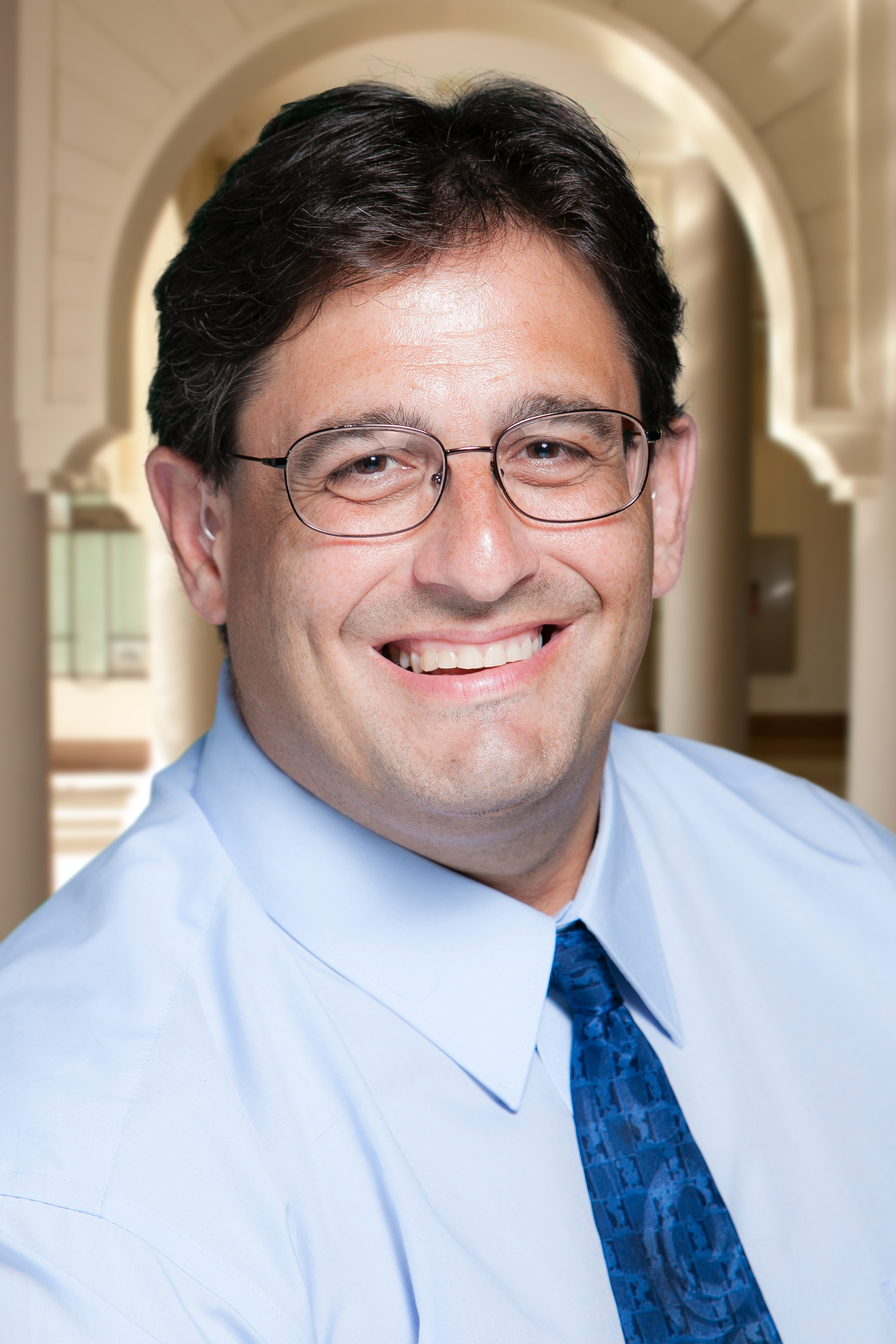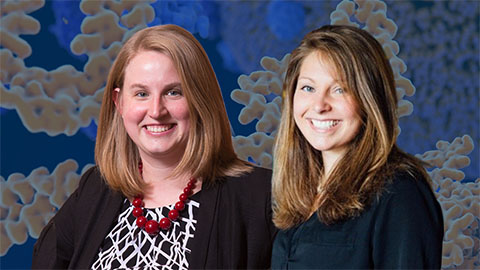Provost makes chemistry accessible for undergrads
To find a way to attend college and begin his career in biochemistry and molecular biology, Joseph Provost enlisted in the U.S. Army, serving in the military police. Later, while earning a bachelor’s degree from Bemidji State University in Minnesota, Provost was commissioned as a nuclear chemical and biological warfare officer and served for 19 years, finishing his duty as a commander of a mechanized infantry company of the Minnesota National Guard.

“Going from high school into the Army helped me learn discipline and focus that I didn’t have before,” Provost said. “Something particularly helpful in the research lab and the classroom. Also, being an officer helped me with leadership and management skills, including strategic planning and coordinating moving parts.”
Provost, recipient of the 2022 ASBMB Award for Exemplary Contributions to Education, is the department chair and a professor of chemistry and biochemistry at the University of San Diego. For 27 years, he has worked in undergraduate education and has taught numerous biology, chemistry and biochemistry courses while maintaining a National Institutes of Health- and National Science Foundation-funded research lab focusing on lung cancer and fibrosis.
Provost earned his Ph.D. from the University of North Dakota School of Medicine and Health Sciences and then did a postdoc in John Exton’s lab at the Vanderbilt University Medical School. In 1997, he became a professor in the chemistry and biology departments at Minnesota State University, Moorhead. Before moving to the University of San Diego, where he chairs the chemistry and biochemistry department, Provost worked on as a senior member of the North Dakota State University Center for Biopharmaceutical Research and Production.
“When I got to Moorhead, the university was starting to build a culture of undergraduate mentored faculty research,” Provost said. “I helped create and build the biochemistry/biotechnology program and a serious re-design that was very successful.” He also is thrilled to work with a talented group of faculty at San Diego creating a fantastic place to learn and do research.
Because neither of his parents finished high school, Provost recognizes the challenges students face and really enjoys helping underrepresented, first-generation and transfer undergraduates gain confidence in science. He uses mind maps, flipped classrooms, course-based undergraduate research experiences, case-based learning to make learning accessible to all students.
“He uses innovative pedagogy to get his students’ attention,” Ellis Bell wrote of Provost in his nomination letter. “He trains students without ‘cherry-picking’ the best.”
Provost, who has been at USD since 2013, serves on the ASBMB Education and Professional Development Committee, co-established Student Chapters, co-developed the fellowship and accreditation programs, co-led and judged the undergraduate poster competition, and is on the Membership Committee.
When the pandemic started, he helped lead a group to curate resources for ASBMB and shared them with the biochemistry and molecular biology community worldwide.
“My goal has always been to do what it takes to help students and work with faculty and help them,” Provost said, “or create opportunities for people to do cool things.”
‘It’s all about the students’
Joe Provost is an innovator, leader and educator respected by the ASBMB and the global biochemistry and molecular biology community. Whether it’s arranging a trip for a student’s medical school interview, inviting a student to join his lab or offering a listening ear to a faculty member, he is always available to help.Provost has trained more 180 undergraduates and high school and middle school teachers. He also has mentored faculty and served as a program and departmental external reviewer for 13 universities and colleges.
At the 2022 ASBMB annual meeting, Provost’s talk will focus on his work in undergraduate education. He will highlight his innovative pedagogy, training and mentoring so other educators can have resources to support their students.
“I love the community that ASBMB brings together, it’s helping students. So, the focus of my talk is, It’s all about the students,” he said. “Everything I’ve done, everything we’ve done … It’s all been driven to support students.”
2022 ASBMB award winners
Lea Michel, ASBMB Early Career Leadership Award
Marlene Belfort, ASBMB Mid-Career Leadership Award
Michael Airola, Walter A. Shaw Young Investigator Award in Lipid Research
Alex Toker, Avanti Award in Lipids
Tatyana Sharpee, Delano Award for Computational Biosciences
Tracy Johnson, Ruth Kisrchstein Diversity in Science Award
Martin Bollinger, William C. Rose Award
Walther and Robert Farese Jr., ASBMB–Merck Award
Greg Wang, ASBMB Young Investigator Award
Janet Smith, Mildred Cohn Award
Kathleen Collins, Earl and Thressa Stadtman Distinguished Scientist Award
Elaine Fuchs, Bert and Natalie Vallee Award in Biomedical Science
Susan Taylor, Herbert Tabor Research Award
John Boothroyd, Alice and C.C. Wang Award in Molecular Parasitology
Enjoy reading ASBMB Today?
Become a member to receive the print edition four times a year and the digital edition monthly.
Learn moreGet the latest from ASBMB Today
Enter your email address, and we’ll send you a weekly email with recent articles, interviews and more.
Latest in People
People highlights or most popular articles

Redefining lipid biology from droplets to ferroptosis
James Olzmann will receive the ASBMB Avanti Award in Lipids at the ASBMB Annual Meeting, March 7–10, just outside of Washington, D.C.

Creating change in biochemistry education
Pamela Mertz will receive the ASBMB William C. Rose Award for Exemplary Contributions to Education at the ASBMB Annual Meeting, March 7-10 in Washington, D.C.

Amacher, Pollock named Henry Dreyfus scholars
They were recognized for their outstanding research scholarship and a deep commitment to undergraduate education and each received $75,000 to fund their research.

Trainee mentorship as immortality
Suzanne Barbour will receive the ASBMB Sustained Leadership Award at the ASBMB Annual Meeting, March 7-10 in Washington, D.C.

Life in four dimensions: When biology outpaces the brain
Nobel laureate Eric Betzig will discuss his research on information transfer in biology from proteins to organisms at the 2026 ASBMB Annual Meeting.

Fasting, fat and the molecular switches that keep us alive
Nutritional biochemist and JLR AE Sander Kersten has spent decades uncovering how the body adapts to fasting. His discoveries on lipid metabolism and gene regulation reveal how our ancient survival mechanisms may hold keys to modern metabolic health.

